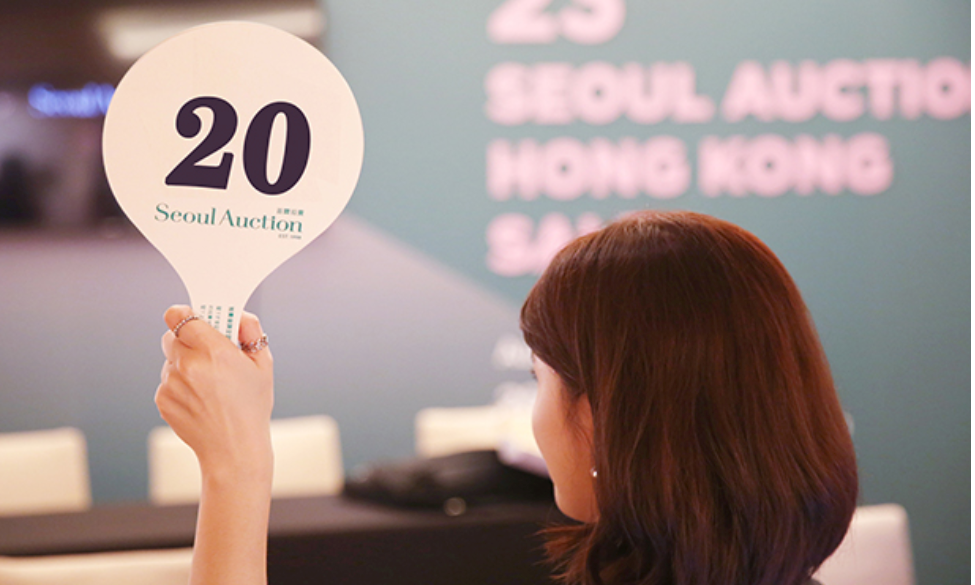A live sale at Seoul Auction, one of Korea's largest auction houses. Courtesy of Seoul Auction
A group of Korean galleries will hold a live sale later this month as a "warning" to auction houses against driving speculation in the art market and undermining the role of the primary sector.
The Galleries Association of Korea, which organises Korea's biggest art fair KIAF and will partner with Frieze for its new fair in Seoul this year, released an impassioned statement yesterday announcing that a "gentleman's agreement" made in 2007 between the association and the country's two largest auction houses, K Auction and Seoul Auction, has been violated.
This agreement, the statement reads, was signed at a time when the Korean art market was "rapidly overheating", and outlined a number of ways to ensure "healthy co-existence" between primary and secondary market players. It stipulates that neither auction house can hold more than four "major auctions" a year, sell works created within three years, or buy works to later sell them. All of these promises have since been broken: Korean auction houses now routinely contact artists directly to consign new works and hold as many as "80 sales a year", the association claims.
This is not the first warning the association has given Korea's auction houses. In August, it sent an official letter demanding K Auction and Seoul Auction refrain from releasing "provocative media reports", and to cease "excessively frequent" sales and direct deals with artists.
The 120-lot auction, held on 26 January, is the association's "last resort" and will take place at Westin Josun Seoul Hotel in Seoul. The sale will be conducted privately and all lots have been consigned by the association's galleries. No buyer's fee will be charged.
“We are not aiming to continue with the auctions permanently, but it is a message that we need to practice good manners as key art market players,” Hwang Dal-sung, chairman of the association, says in a statement.
Neither auction house responded to The Art Newspaper's request for comment. However, a spokeperson from Seoul Auction told the Korean Herald: “We just tried to keep up with the market demand, with an increasing number of people wanting to purchase artworks. We are discussing our stance internally and will make our official comments as soon as possible”.
This warning shot comes at a time of booming activity in the Korean art market, with Western galleries such as Thaddaeus Ropac and Pace setting up shop and expanding in Seoul as its young collector base grows. But for Seoul's homegrown galleries, this is as much a cause for concern as celebration, especially for its younger artists who are most vulnerable to market manipulation.
"Now is an important time to expand the base of the Korean art market and to step forward into the global art market. But this requires clear regulations on the roles and functions of domestic galleries," the association says. "For young artists to be evaluated numerically and traded through direct auctions without going through galleries, from a long-term perspective, undermines the foundation of the market."
"Excessive and frequent price fluctuations caused by auction houses are causing damage to artists who should be recognised for their artistic value instead of being subject to extreme capitalist logic."

